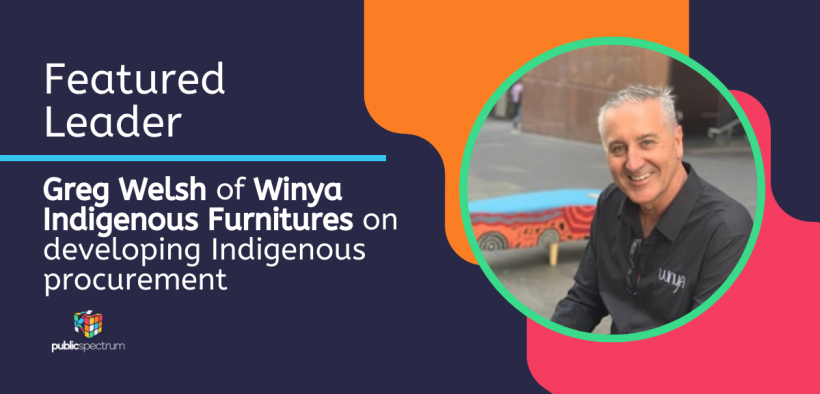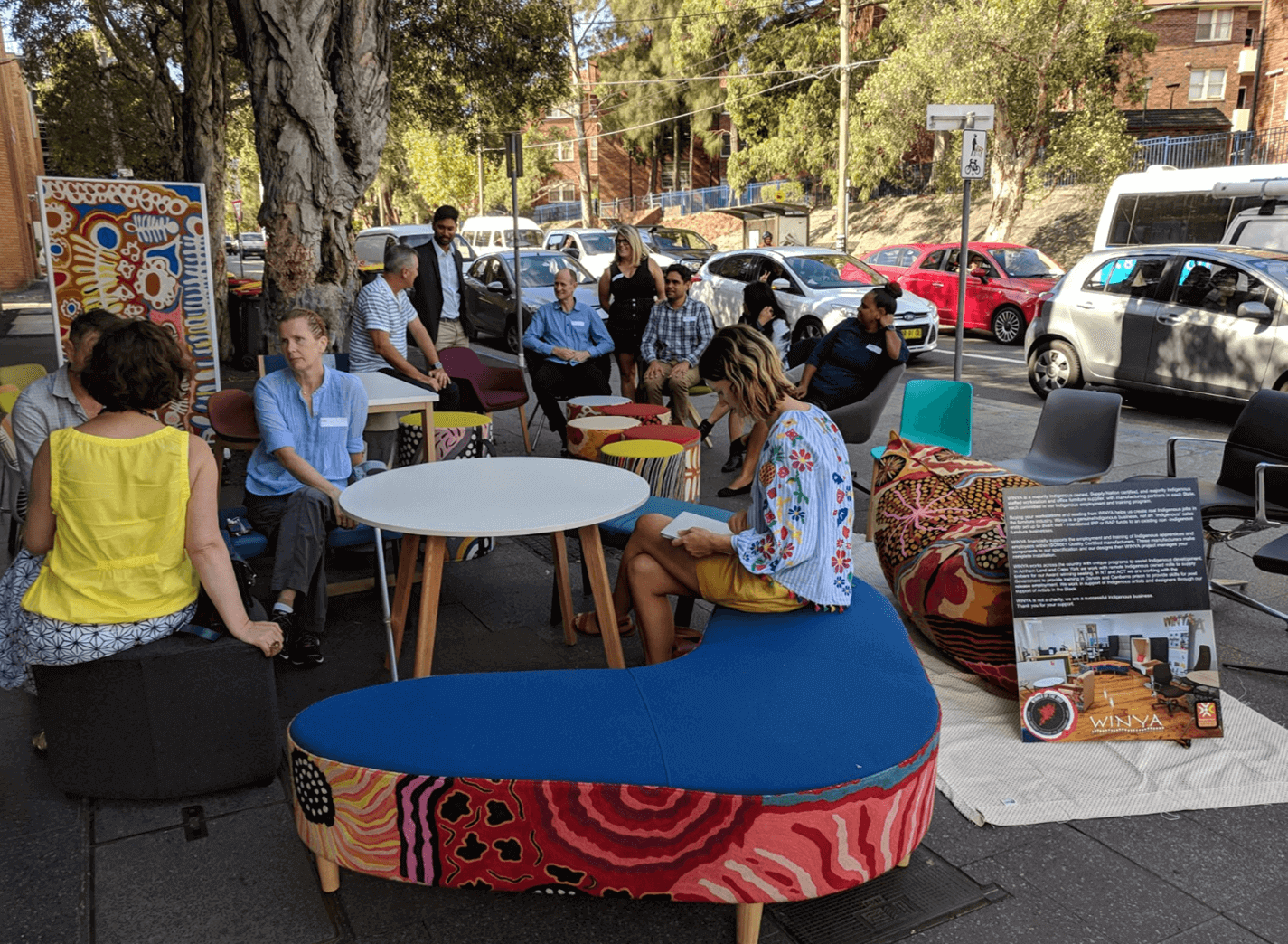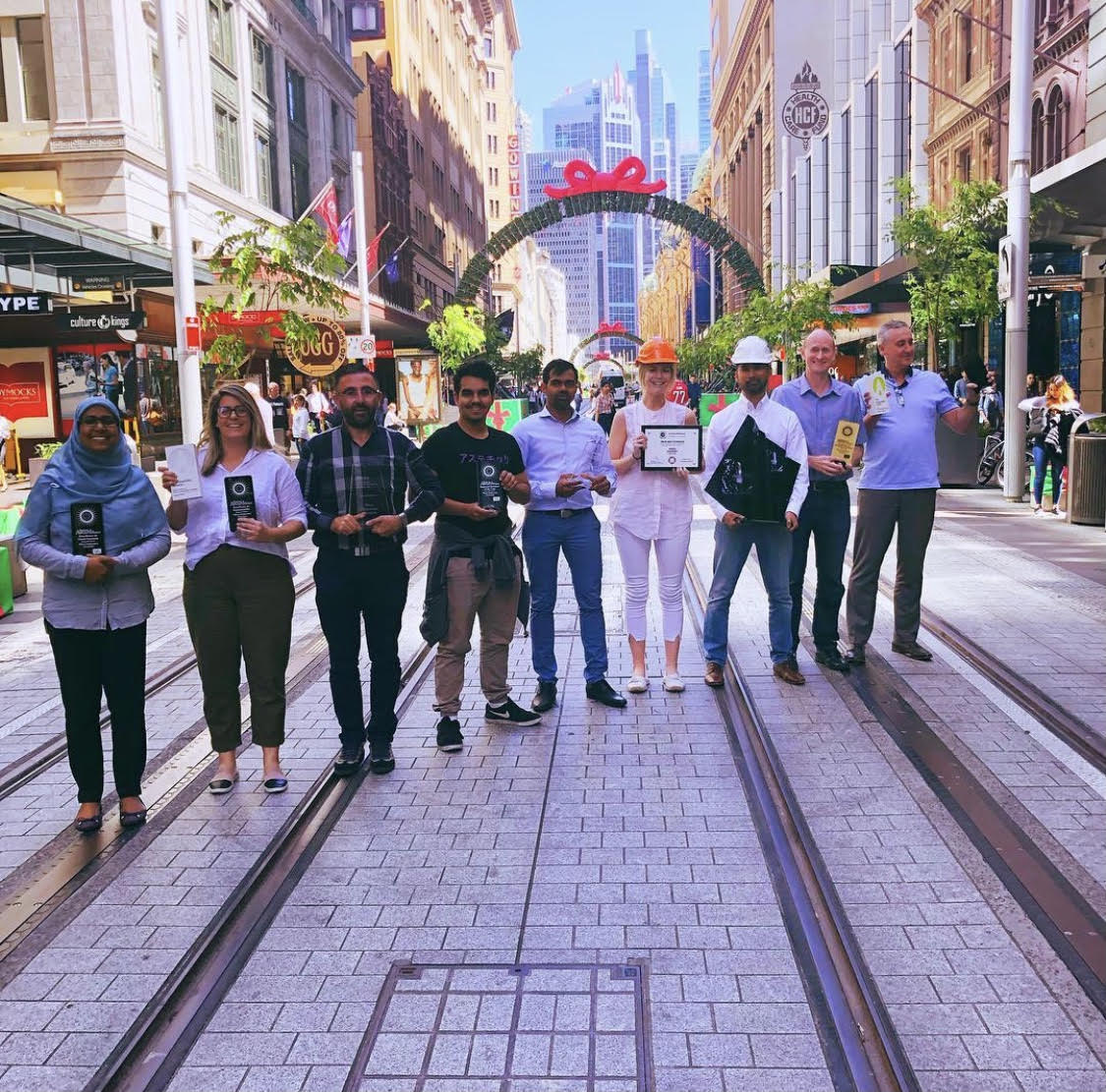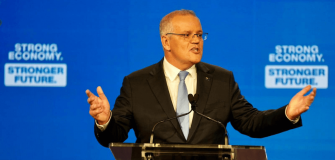Greg Welsh of Winya on developing Indigenous procurement
Share

As the Australian Government continues to encourage buyers to purchase directly from Indigenous small and medium enterprises, Winya Indigenous Furniture leads the way in improving the country’s Indigenous procurement.
Public Spectrum has caught up with Greg Welsh, the Director and General Manager of Winya, to talk about his experience with establishing a company that would go on to create incredible opportunities for Indigenous people.
Greg Welsh has previously worked as CEO in several senior management roles such as Sebel Furniture, Corporate Express (now Staples) and Gregory Ergonomic Chairs. His great-grandfather was a Kamilaroi man, with the family originating from Pilliga NSW.
Greg has used this background to gain strong support from the industry for Debbie Barwick’s industry-based employment and manufacturing model, which sets to achieve genuine long-term Indigenous employment in the Australian Office Furniture Industry. Debbie is a Kamilaroi Woman from Bora Crossing NSW and is the chairwoman of Winya Indigenous Furniture.
Greg is actively involved in Supply Chain Management and Tendering and brings a strong manufacturing and QA focus to the operation. He also has had a long-term social focus as a Justice of the Peace and as a Director of the Global Compact Network Australia.
In this interview, Greg shares how he was able to do his part in developing the country’s Indigenous procurement.

What were the key factors that inspired you to establish Winya Indigenous Furniture?
The history of Winya goes back well before the introduction of any of the Government Procurement Policy to assist Aboriginal business and a serendipitous meeting with the then Chair of the United Nations Global Compact Catherine Hunter introduced me to Debbie Barwick, CEO of the NSW Indigenous Chamber of commerce.
Previously, as CEO of Sebel furniture, we had started work on introducing Indigenous apprentices to the business and I saw that businesses could make deliberate decisions to be part of creating better outcomes for Indigenous people.
The conversation with Debbie basically went this way:
Me: I want to partner with an existing Indigenous engineering or manufacturing business to set up office seating manufacturing in Australia
Deb: there are none; this is the very first generation of Indigenous businesses. There are no Indigenous businesses that have been handed down from father to daughter like long-standing western businesses.
Me: so where do I go with this?
Deb: I want to work with you on this, but you have it all wrong!
Debbie’s background was in labour and recruitment, and with my manufacturing, we set up a ground-breaking model for Winya where we would work within and across the whole Australian furniture industry, placing Indigenous trainees and apprentices (at our cost), into the furniture factories that would then make our components and parts.
This meant that rather than competing with the industry, we had hundreds of supporting business owners across Australia who supported us and our Indigenous empowerment and employment model.
This has allowed Winya to grow rapidly and be recognised as a leader in Indigenous engagement globally. In 2019 Winya became the only company in Australia awarded by the UNITED NATIONS for Leadership in Sustainable Development (SDG) for our work in empowering Indigenous Peoples.
And this is more important now as we compete with the very biggest names in furniture, all of which have now set up “Indigenous businesses” that send all the sales back into their long-established businesses, in my view skimming away all the Governments support and efforts in Indigenous procurement.
This is not a furniture-specific thing, the Indigenous business community is seeing “black-clad” competition across every industry sector.
Learn more about the changing nature of procurement by joining us at the Future of Gov Procurement Summit where Greg will be speaking.
How were you able to overcome the issues that your company faced early on in its establishment?
In our first years, customers wanted to “help us” and gave us lots of small jobs to test us.
It nearly crippled the business, as they gave us all their complex small projects, that the big end of town did not want to do. It meant tying up senior people on tiny, labour-intensive projects that stifled our ability to focus on growing the business.
But we did these jobs, worked ridiculous hours and survived this “trial” period.
While we now do million-dollar projects around the country, some people still want to give us little trials. They struggle with the separation anxiety from their existing supply chain and struggle with their perception that Indigenous businesses are not as good as their existing suppliers.
Let’s be clear, there are now great Indigenous businesses (and Genuine ones, not Black Clad) across every industry sector. Most of us are still much smaller than our big competitors and you may see this as a risk, but what you are getting in return is a highly focused business owner, not a half-engaged employee of a big company.
How has your company helped in bringing indigenous enterprises to the forefront?
From the outset, we were committed to being different and with Debbie’s role as Chair of the Indigenous Chamber, it has always been a focus to bring other Indigenous businesses and particularly remote communities into our supply chain.
We won the first of two Australian Sustainability awards and a Prestigious Banksia Award for the work we did in remote communities, salvaging timbers off mine-site clearing in Arnhem Land to use in the manufacture of our Lounges.

Since then we have helped develop Indigenous-owned installation businesses, worked with Indigenous caterers and more recently even done work with Indigenous distillers, developing custom-designed cocktails for our regular showroom events.
As Director and General Manager of Winya Indigenous Furniture, can you share your plans moving forward?
One of the things we are increasing focus on is our work in Prisons. Unfortunately, 27% of people in prison are Aboriginal or from Torres Strait from only 3% of our broader population.
We are stepping up on the programs that we have previously run to provide a channel for furniture training in a number of prisons around Australia. We are working closely with some major corporates and Government agencies to buy the furniture from this model.
Most of our clients have modern slavery obligations but this furniture is costing more than normal because of the work going into the program and our clients are participating in these projects as part of their CSR programs, not to get cheap furniture.
Winya is now in every state, with our Brisbane and Adelaide showrooms now opening after treading water during COVID. So we think we can keep growing and keep expanding our good work. However, we need the buyer to start asking the question about whether they are buying from a genuine Indigenous business or just assisting Black Cladding.
Want to gain and share knowledge from other professionals within the industry? Check out our latest public sector events here.
Eliza is a content producer and editor at Public Spectrum. She is an experienced writer on topics related to the government and to the public, as well as stories that uplift and improve the community.





Today’s Pick
11th Annual Aus Goverment Data Summit
April 1, 2025
7th Annual NZ Government Data Summit
May 7, 2025
3rd Public Sector Comms Week
May 14, 2025
Subscribe
We send emails,
but we do not spam
Join our mailing list to be on the front lines of healthcare , get exclusive content, and promos.
AI appointment Australia Australian boost boosts business businesses covid-19 cyber cyber attack cyber security cybersecurity data data breach data management defence Digital employment enhance enhances fraud funding governance government grants infrastructure Innovation Lockdown management new zealand NSW NZ online privacy public Public Sector queensland renewable energy scams security Social Media Technology telecommunications victoria
-

Understanding and building your digital strategy
Digital Government, Opinion
-

Featured Leader: Jamie Morse on multi-channel strategies for communication
Communications, Featured Leader
-

Featured Leader: Tegan Tembe of NSW Treasury on creating solid planning strategies and processes
Featured Leader
-

Wirraka Maya Health Service improves patient care with My Health Record
Learning
Show More-

Effects of ineffective communication in the workplace
Communications, Personal Development
-

7 ways you can enhance your personal development skills
News, Personal Development
-

5 advantages of working in the public sector
News, Personal Development, Professional Development
-

7 causes of communication issues in the workplace
Communications, News, Personal Development
Show MoreLast Viewed